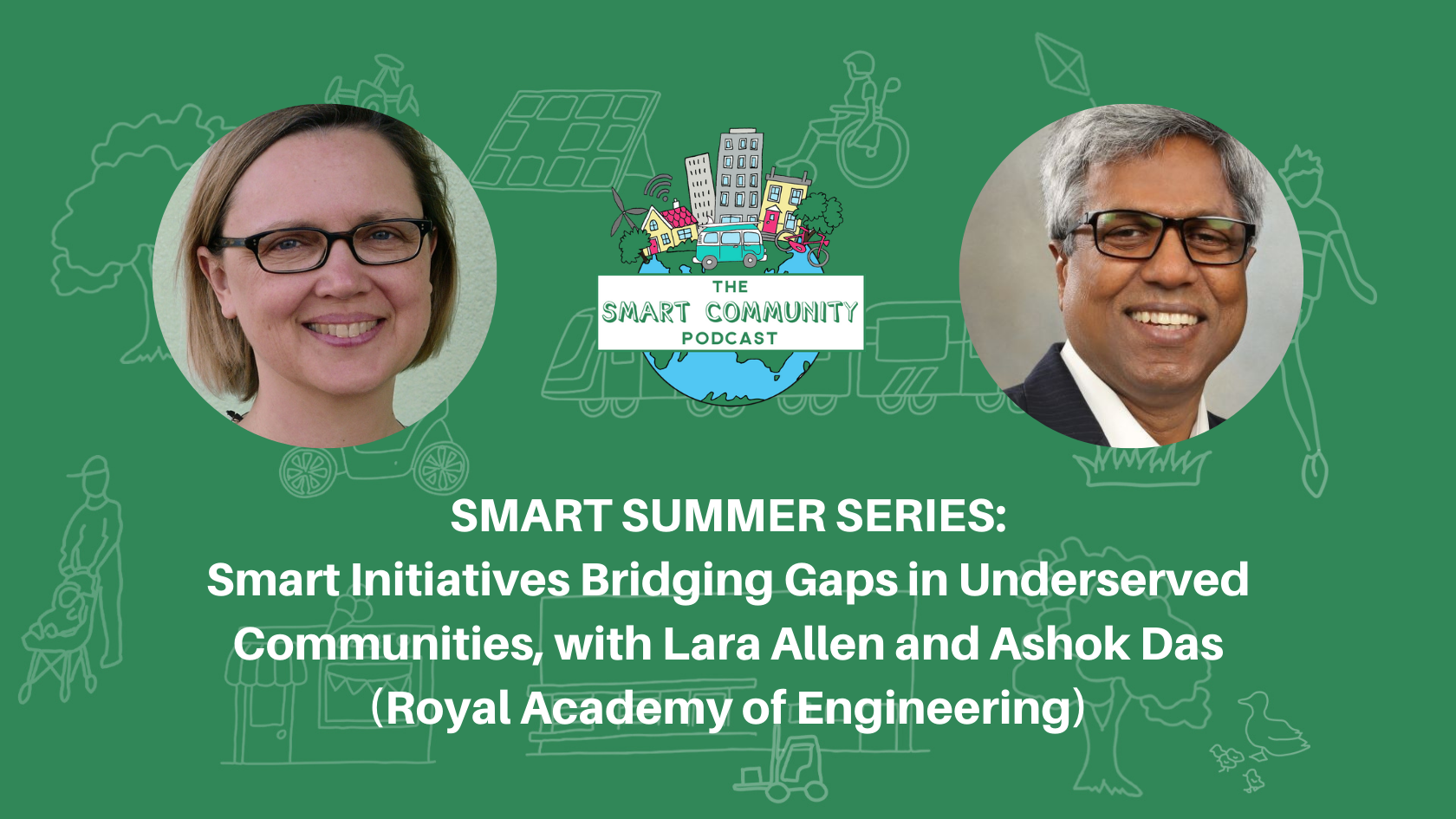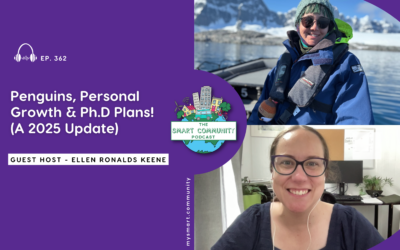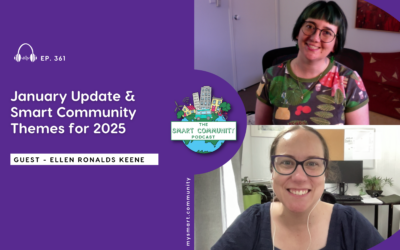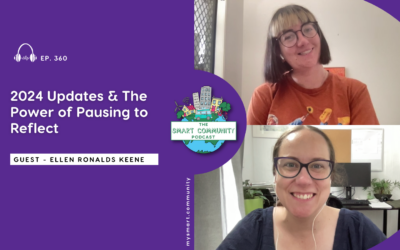Hi #smartcommunity friends! We are finishing up our summer series with an extra special episode, before we shift back into regular content again. In this episode I’m excited to share a brilliant conversation I had with Lara Allen and Ashok Das.
Lara and Ashok are event chairs for the upcoming Royal Academy of Engineering’s Frontiers event on Smart communities, which focus on interdisciplinary research to address global development challenges. This event will focus on low-tech solutions and innovations, as well as bottom-up, context specific approaches that can be used to improve lives of the most underserved, mainly rural, communities in developing countries. The theme will also touch on the unintended consequences of some of those solutions in communities. I’m excited to be involved in this event, delivering the keynote speech. You can check out www.raeng.org.uk/frontiers for more information on future opportunities. Now back to Lara and Ashok.
Lara is the CEO of the Centre for Global Equality, a Cambridge-based civil society organisation that enables the evolution of innovative solutions to global challenges through inclusive innovation. She is also an Affiliated lecturer in Inclusive Innovation at the Department of Chemical Engineering and Biotechnology, University of Cambridge.
Ashok is the Founder and CEO of SunMoksha, a clean technologies company working on the socioeconomic development of rural communities. He has over 25 years of experience in semiconductor equipment (Bay Area, USA) and clean technologies (Bangalore, India), with a decade in developing and implementing state-of-the-art solutions for microgrids and irrigation to develop smart villages.
In this episode Lara and Ashok tell us about their backgrounds in academics and engineering respectively, and their shared passion for bridging divides and closing gaps in rural and underserved communities. Lara explains what inclusive innovation and appropriate technology are and why they matter for empowerment in Smart Communities, and Ashok tells us about some of the challenges he faced in creating Smart Communities in rural India.
We talk about why it’s important to focus on Rural and Underserved Communities and the power of long term interventions that take more than one generation to see results, as well as the role of entrepreneurship in research for international development.
Lara, Ashok and I discuss why interdisciplinary research is important in this area of smart communities and the biggest mistakes that engineers often make when approaching these projects. We finish our chat discussing advice for young professionals wanting to get into this space. As always, we hope you enjoyed listening to this episode as much as we enjoyed making it!
Listen here:
What we cover in this episode:
- Lara and Ashok’s backgrounds in academics and engineering respectively
- Their shared passion for bridging divides and closing gaps in rural and underserved communities around the world
- What inclusive innovation and appropriate technology mean and why they matter for empowerment in Smart Communities
- Some of the challenges Ashok and his company faced in creating Smart Communities in rural India
- The problem with one-size-fits-all solutions and what to do instead
- Why it’s important to focus on rural and underserved communities
- The power of long term interventions that take more than one generation to see results
- The role of entrepreneurship in research for international development
- The need for empowering micro-preneurs to be self-sufficient and in turn help improve the economies of their villages
- Why interdisciplinary research is important in this area of Smart Communities
- The biggest mistakes engineers often make when approaching these projects
- How to ensure projects remain sustainable and incorporate the UN Sustainable Development Goals in the interventions
- Ashok’s advice for young professionals wanting to get into this space
Quotes:
“I was very frustrated by the gap between the knowledge and the technical expertise of students that I was working with, and rural communities. And there were so many things that the students knew that the communities could use if they could just possibly share it.” ~ Lara
“I hail from rural India. I have been working primarily and focused on energy access, and energy access for empowerment. It’s not just light, it’s the power that is important. So power is for empowerment. And how can power be used to generate livelihood in rural India?” ~ Ashok
“If we do not focus on this gap, the socio economic gap will stay where it has been. We have talked about removing poverty from the earth for many, many years. But we still have the same amount of poverty. Why? Because we need to focus on something that enables them, that empowers them, and not something that you just give out and move on.” ~ Ashok
“Less work has been done on those [underserved] communities, more needs to be done. So in a sense, for engineers or for development people, there’s more exciting things to be tackled, because they just haven’t been done before. And if you do tackle them effectively, and make a difference, then you can really make a difference at scale.”~ Lara
“Entrepreneurship is not only the big entrepreneurs, I believe micro entrepreneurship is equally important. When I go into the village, we enable certain people and they become micro entrepreneurs, they start small businesses. We are basically trying to create millions of micro-preneurs, rather than a few large entrepreneurs.” ~ Ashok
“We’re working very much in the real world, the real world happens to be that rural village, and the real world doesn’t work in silos. I mean, none of us live in silos and everything that we do is affected by the ecosystem in which we live. So if you want to effectively impact an ecosystem, then you need to have experts or people in disciplines who understand those different parts of the ecosystem and how they all fit together.” ~ Lara
“[Inclusive Innovation] is innovation for, with and by the rising billions. And so the ‘for’ is the innovation needs to be totally appropriate for those contexts. The ‘with’ is we’re not going to get it right, unless we co create with people in those contexts and shape the opportunity of the new engineering to really fit what’s needed. And eventually the ‘by’, well, people are innovating themselves in those villages.” ~ Lara
“More and more the young engineers are choosing the route and choosing the path of community and sustainable development. They are more empathetic to how the world should look. In fact, I am really very hopeful and enthusiastic about the future because this new generation is going to be really understanding the world challenges, they really know what needs to be done.” ~ Ashok
Connect:
Find the full show notes at: www.mysmart.community
Find out more about the Royal Academy of Engineering Frontiers conference and connect with Lara and Ashok via the website www.raeng.org.uk/frontiers
Connect with me via email: hello@mysmart.community
Connect with My Smart Community via LinkedIn or Twitter and watch on YouTube
The Smart Community Podcast is produced by Perk Digital.






0 Comments